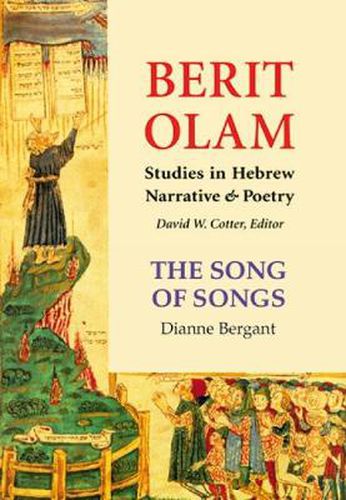Readings Newsletter
Become a Readings Member to make your shopping experience even easier.
Sign in or sign up for free!
You’re not far away from qualifying for FREE standard shipping within Australia
You’ve qualified for FREE standard shipping within Australia
The cart is loading…






Among al of the books of the First Testament, the Song of Songs is one of the most intriguing. On the one hand, its unabashed sensuality has captured the imagination and has endeared it to those who appreciate passionate human love. On the other hand, more demure readers have frequently been chagrined by their own fascination with its erotic character and have cloaked their interest under the guise of metaphorical reading. Both interpretations of the Song of Songs have been endorsed. Down through the ages, both Jewish and Christian interpreters have delighted in the exquisite imagery of the book’s songs, but they have also frequently reverted to allegory in their interpretations. This commentary views the Song as a collection of love poems and carefully examines features of Hebrew poetry in order to uncover the delicacy of their expression. It is unique not only in the attention that it gives to the obvious feminine perspective of the poems but in their ecosensitive character. Although it is a tribute to mutual love, the principal frame of reference is the amorous disposition of the woman. Her words open and close the Song and her voice is dominant throughout. The imagery that the lovers use is drawn from nature. Whether it is the woman in awe of the strength and splendor of her lover or the man glorifying her physical charms, the descriptions al call on elements from the natural world to characterize the feature being described. Whatever they experience or know or even desire is somehow rooted in the natural world. Chapters are Superscription,
Mutual Yearning (1:2-2:7),
An Opportunity Lost, Then Found (2:8-3:5),
Ravished By Beauty (3:6-5:1),
One of a Kind (5:2-6:3),
The Admiration of all over (6:4-8:4), and Love Affirmed (8:5-8:14).
Dianne Bergant, CSA, is professor of Old Testament studies at Catholic Theological Union in Chicago. She is author of thePreaching the New Lectionary series and general editor of The Collegeville Bible Commentary (Old Testament) published by The Liturgical Press. She was also editor of The Bible Today from 1986-1990.
$9.00 standard shipping within Australia
FREE standard shipping within Australia for orders over $100.00
Express & International shipping calculated at checkout
Among al of the books of the First Testament, the Song of Songs is one of the most intriguing. On the one hand, its unabashed sensuality has captured the imagination and has endeared it to those who appreciate passionate human love. On the other hand, more demure readers have frequently been chagrined by their own fascination with its erotic character and have cloaked their interest under the guise of metaphorical reading. Both interpretations of the Song of Songs have been endorsed. Down through the ages, both Jewish and Christian interpreters have delighted in the exquisite imagery of the book’s songs, but they have also frequently reverted to allegory in their interpretations. This commentary views the Song as a collection of love poems and carefully examines features of Hebrew poetry in order to uncover the delicacy of their expression. It is unique not only in the attention that it gives to the obvious feminine perspective of the poems but in their ecosensitive character. Although it is a tribute to mutual love, the principal frame of reference is the amorous disposition of the woman. Her words open and close the Song and her voice is dominant throughout. The imagery that the lovers use is drawn from nature. Whether it is the woman in awe of the strength and splendor of her lover or the man glorifying her physical charms, the descriptions al call on elements from the natural world to characterize the feature being described. Whatever they experience or know or even desire is somehow rooted in the natural world. Chapters are Superscription,
Mutual Yearning (1:2-2:7),
An Opportunity Lost, Then Found (2:8-3:5),
Ravished By Beauty (3:6-5:1),
One of a Kind (5:2-6:3),
The Admiration of all over (6:4-8:4), and Love Affirmed (8:5-8:14).
Dianne Bergant, CSA, is professor of Old Testament studies at Catholic Theological Union in Chicago. She is author of thePreaching the New Lectionary series and general editor of The Collegeville Bible Commentary (Old Testament) published by The Liturgical Press. She was also editor of The Bible Today from 1986-1990.